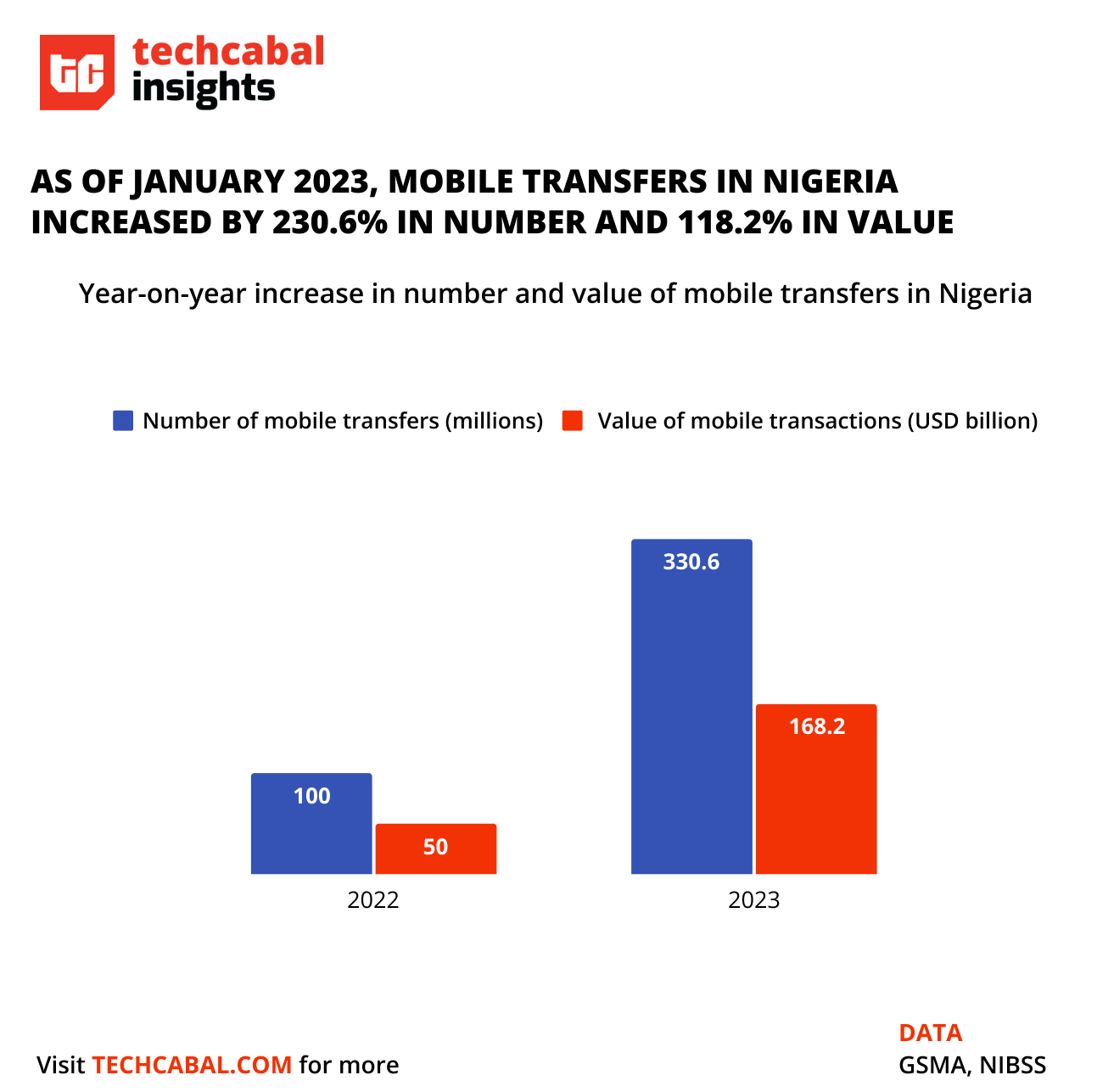
This is a guest contribution from ’Lamide Young and Judith Hassan of Gumi & company
Towards the end of 2022, Nigeria’s Central Bank announced it would be redesigning the country’s currency notes. A short time frame to deposit old notes and a consequent insufficient supply of new notes created a cash crunch that has been well documented and criticised.
The scarcity meant businesses of all sizes had to adapt, including friendly neighbourhood ones run by owners who had withstood cashless payments for years or simply had no real need for it. Suddenly, people were buying everyday goods from local shops and making payments using their phones or ATM cards. Government data reported a year-on-year increase in mobile transfers of 230.6% in January 2023, while the Nigeria Interbank Settlement System (NIBSS) also reported a 118.2% increase in the value of transactions. Owners adapted because their businesses depended on it. Those who had already embraced digital systems and tools prior to all this were top-of-mind for customers who were careful about how they spent whatever physical cash they had. For businesses and service providers that did not adapt, they lost business to those who did.

Nigeria’s cash limit policy was a boon for mobile payments | Charts by Ayomide Agbaje, TC Insights
Nigeria’s recent experience is one case in many pointing to this truth: digital transformation is no longer an option for organisations; it is a requirement. It is a moving train heading towards the future, and those who do not get on board will be stuck in a world that is sure to vanish soon.
Whether an organisation is a “digital native” or not, the promise and potential of (exponential) technology, data, and new ways of creating and delivering value, is immense.
Here are the facts
Organisations that aren’t digitised lag behind sector leaders by as much as 15% in market share and earnings. Making the choice to undergo digital transformation can either increase industry contribution to GDP over the next three years by over $1.25 trillion or reduce it northward of $600 billion. For emerging-market organisations, once the train is missed, catching up is difficult.
A common argument for not trying to catch up with digital transformation is that the markets organisations in Africa (especially) and the Middle East serve are themselves behind in their adoption of the core technologies that enable the digital economy (the internet being the cornerstone). There is also the lack of appropriate infrastructure to enable organisational efforts. Reimagined value does not seem crucial because the belief is that there will be insufficient consumers of it, if any, resulting in white elephants.
Is there a point then?
Where there is a lag, and where there is leadership, there are opportunities common and unique to both regions. In Africa, for example, initiatives such as the Digital Economy Initiative for Africa, by the World Bank, as well as the African Union’s Digital Transformation Strategy for Africa show the direction of both regional and global agenda to integrate countries which are falling behind into the digital economy.
In the Middle East, projections show that the digital economy is expected to hit $500 billion by 2030 and contribute a 40% increase to GDP per capita. Data like this points to opportunities where they abound, as well as a commitment to creating them, where they seemingly do not.
Sponsored: Meet the Max mafia
What to do then?
Today, the technology industry is one of the fastest growing, with major players in the business world being tech companies. These organisations are somewhat seen as separate from more traditional entities that do not focus on technologically-based goods and services. However, the evolving reality of our world is that technology can no longer stand separate as a descriptive term for certain kinds of companies.
Today’s technology company is not (only) the company that builds apps or cool gadgets, as technology becomes a core part of value created (products and services), as well as operations for organisations across sectors and industries. In the 21st century, and beyond, every company will have to be a digital organisation, powered by technology, because that is what it will require to participate in and thrive in a digital economy. This is especially crucial for organisations in Africa and the Middle East (AME) where major gaps exist in infrastructure, skill of working populations, approaches to work, technology adoption, policies, and use of data. Bridging organisational gaps, putting in place the right foundational systems, and doing it today, will determine which organisations make it to the future, and end up defining it.
Learn how organisations in Africa and the Middle East can radically innovate the way they currently work and increase stakeholder value through exponential technologies in our Digital Transformation Cheat Sheet.
Author Profiles
’Lamide Young and Judith Hassan are, respectively, innovation & strategy leader, and knowledge & communications manager at Gumi and Company, an innovation factory working across Africa and the Middle East.
We’d love to hear from you
Psst! Down here!
Thanks for reading The Next Wave. Subscribe here for free to get fresh perspectives on the progress of digital innovation in Africa every Sunday.
Please share today’s edition with your network on WhatsApp, Telegram and other platforms, and feel free to send a reply to let us know if you enjoyed this essay
Subscribe to our TC Daily newsletter to receive all the technology and business stories you need each weekday at 7 AM (WAT).
Follow TechCabal on Twitter, Instagram, Facebook, and LinkedIn to stay engaged in our real-time conversations on tech and innovation in Africa.






























